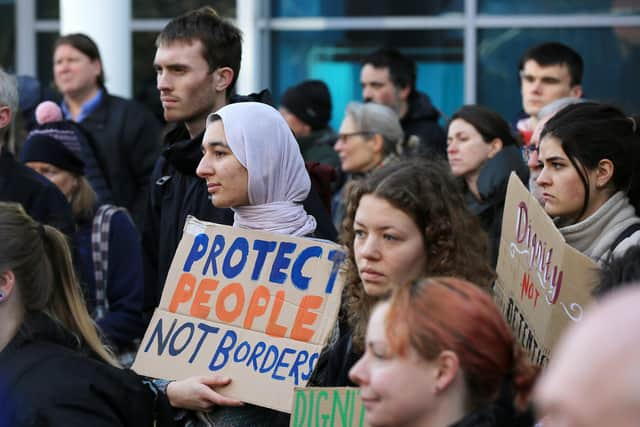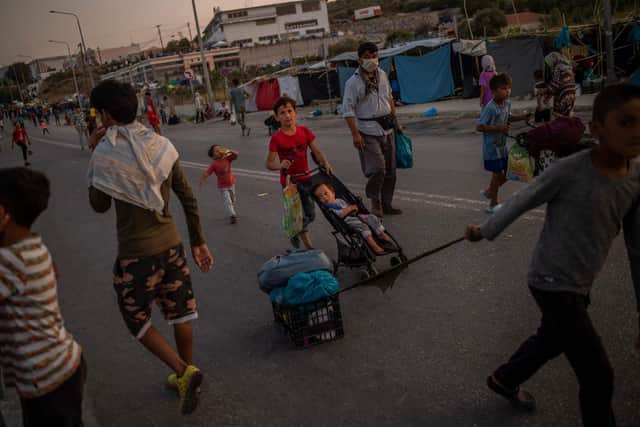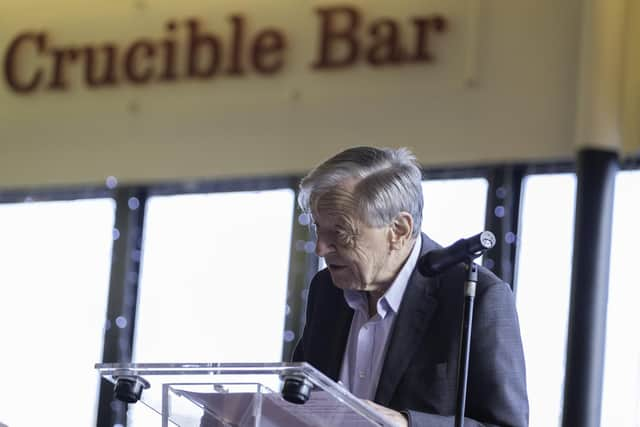Young Sheffield campaigner Molly Meleady-Hanley demands action to help vulnerable young asylum seekers
and live on Freeview channel 276
Those whose lives are marked by insecurity are being badly affected even more.
Even in high-income countries, before the pandemic hit, many unaccompanied displaced children had been left in a terrible state and, with public child-protection services stopping in many parts of Europe, they were forced to try to survive on the streets, exposed to violence, exploitation and abuse.
Advertisement
Hide AdAdvertisement
Hide AdIn 2019 alone, 33 million children and young people were living outside of their country of origin as displaced vulnerable people and today the plight of asylum seeker children and young people here in the UK and throughout Europe is getting worse every day.


In the UK there have been serious delays in processing their claims and paperwork because of Covid-19.
Despite earlier promises to prioritise these children and young people, there remains a substantial shortfall between the funding that local authorities receive from Government and the actual cost of caring for vulnerable children and young people.
Scenes of the burnt-out refugee camp at Moria, on the Greek island of Lesbos, leaving already very badly harmed and suffering asylum seeker children and young people devastated and at even greater risk, is also a powerful reminder that Europe’s asylum seeker crisis never really ended.
Advertisement
Hide AdAdvertisement
Hide AdThe EU member states and Britain initially were slow to lessen the dreadful human impact in the camp despite the various nations all being signatories of the UN Convention on the Rights of the Child and other international treaties and despite them having a moral duty to protect, care for and not let these children and young people suffer.


However, in the last few days, 400 children who’d been left without shelter after fire destroyed the Moria refugee camp will be relocated across 10 countries in the European Union, with Germany and France again taking in the bulk of those affected. Britain, however, despite being a close neighbour in Europe, did not step forward to help.
Instead, there is a rising attack on asylum seeker, including against vulnerable children and young people owing to their asylum seeker status. These attacks have been coming from organised groups spreading hatred and xenophobia here in Britain.
Lisa Doyle, the director of advocacy at the Refugee Council, called for “steps to be taken to ensure asylum seekers are not subjected to intimidation and harassment”.


Advertisement
Hide AdAdvertisement
Hide AdSheffield-based Equalities and Human Rights UK also condemned the targeting of asylum seekers as “a despicable fascist and racist act, orchestrated against vulnerable people and those compassionately accommodating them”.
In response the Home Office has had to offer assistance to premises housing asylum seekers, by helping them to put up barriers and fences and to employ security guards because of several racist raids on these places from extremists in recent weeks.
People seeking asylum, including children and young people, it should be remembered, have fled persecution and violence, and have come to the UK in search of safety and protection. Their homes should not be under attack. Britain should be a safe and welcoming place for them.
In December 1940, 80 years ago, Sheffield homes were attacked by fascists in the Blitz. These Nazis thrived on dividing people. Their ideals were based on racism and hate and wanting to get rid of people they wrongly saw as below them.


Advertisement
Hide AdAdvertisement
Hide AdThe behaviour of those attacking asylum seekers’ homes here in Britain and the crisis in Lesbos increase the need for more debate in the UK around issues of racism and hate and in regard also to the laws on family reunion for unaccompanied minors. EU laws which allow minors to have their claim transferred to the UK if they have family in the country are due to finish when the Brexit transition period ends on December 31.
The charity Safe Passage shows there are still children stuck in camps, despite having been already approved for transfer to the UK to join close family. Britain is stopping them coming in to be reunited with their family members here.
Lord Alf Dubs is continuing to lead on campaigning for these children and young people, with an amendment to the immigration bill to protect family reunion which we in the Sheffield Young People’s Equality Group are part of. It is currently before the House of Lords, having been voted down by the Government.
As young citizens of Sheffield, we want to see action against all racism and a long-lasting, compassionate solution for asylum seekers too.
Advertisement
Hide AdAdvertisement
Hide AdThank you to all who support local journalism with a print subscription. The events of 2020 mean trusted, local journalism is more reliant than ever on your support. We couldn't do it without you. Please subscribe here https://www.localsubsplus.co.uk/ so we can keep campaigning on your behalf. Stay safe.